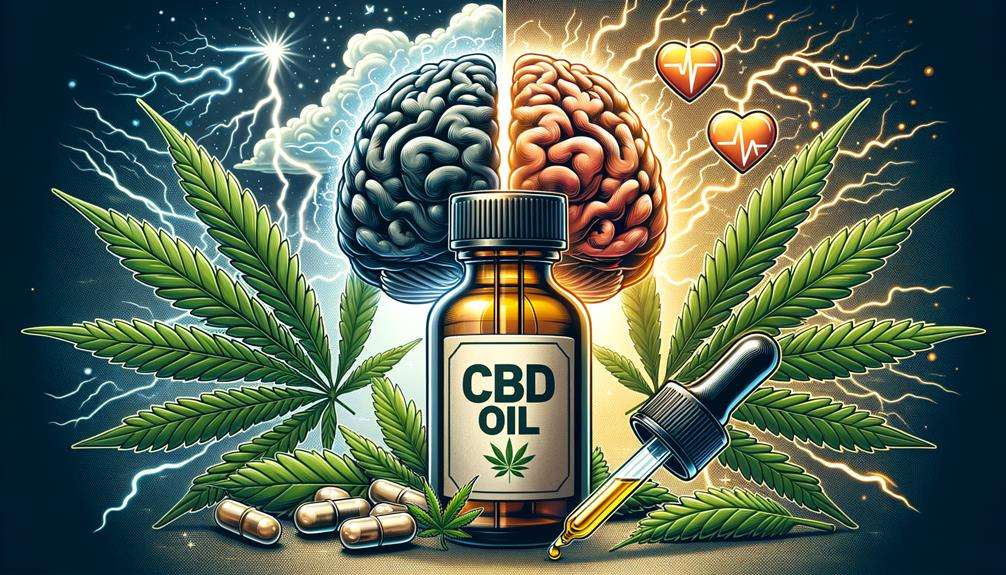
Exploring the Role of MCT Oil in the Ketogenic Diet and CBD Products
Importance of MCT Oil in Ketogenic Diet
MCT Oil is Essential in a Ketogenic Diet, MCT oil, or Medium-Chain Triglyceride oil, plays a significant role in the ketogenic diet due to its unique properties. Unlike other fats, MCTs are metabolized differently by the body. They are rapidly absorbed and converted into ketones, which serve as an efficient energy source when carbohydrates are restricted, as is the case in a ketogenic diet. This makes MCT oil an ideal supplement for those aiming to maintain ketosis, the metabolic state at the core of the ketogenic diet.
Why Bluegrass Hemp Oil Chooses MCT Oil
Bluegrass Hemp Oil, renowned for their high-quality CBD products, specifically chooses MCT oil as a carrier for several compelling reasons:
-
Enhanced Bioavailability: MCT oil promotes the absorption of CBD into the bloodstream. Its efficient digestion and conversion into energy mean that it carries CBD more effectively, allowing for quicker and more pronounced effects. Understanding CBD Absorption and the Role of MCT Oil
-
Natural and Pure: Derived from coconut or palm kernel oil, MCT oil aligns with the natural and organic ethos that Bluegrass Hemp Oil upholds. It provides a safe and healthy option for consumers preferring plant-based and minimally processed products.
-
Neutral Flavor and Odor: The mild nature of MCT oil makes it ideal for blending into CBD products without altering their taste or smell, preserving the natural characteristics of the CBD.
-
Complementary Health Benefits: MCT oil is not only beneficial for ketosis but also offers additional health advantages such as improved energy levels and enhanced cognitive function. These benefits support the general wellness goals that CBD users often have.
Enhancing Cannabinoid Delivery: The Potential of Phospholipids and MCT Oil
Combining MCT Oil with CBD: Enhanced Effects
The combination of MCT oil MCT Oil is Essential in a Ketogenic Diet, and CBD could potentially amplify the benefits of each, particularly in terms of anti-inflammatory effects and bioavailability. This synergy could lead to more effective management of pain, anxiety, and other conditions without the psychoactive effects associated with THC.
Why Is MCT Oil Essential in a Ketogenic Diet?
Understanding Phospholipids in the Context of the Ketogenic Diet
The Role of Phospholipids
Phospholipids are a class of lipids that are a major component of all cell membranes. They can form lipid bilayers because of their amphiphilic characteristic, meaning they contain both hydrophobic (water-repelling) and hydrophilic (water-attracting) properties. This unique structure helps them to play a critical role in cell structure and function, acting as a barrier and gateway for substances entering and leaving the cell.
Phospholipids and the Ketogenic Diet
In the ketogenic diet, the body switches its primary energy source from glucose to ketones, which are substances made from fats. Since phospholipids are integral parts of cell membranes, including those in the brain and other vital organs, they are essential for maintaining cellular integrity and function during the metabolic shift that occurs in ketosis.
The Potential Benefits of Combining Phospholipids, MCT Oil, and Cannabinoids
Benefits of Phospholipids in Ketosis
-
Enhanced Brain Health: The brain is one of the primary organs affected by the ketogenic diet, as it can utilize ketones for energy when glucose is scarce. Phospholipids contribute to the health and maintenance of neural cell membranes, supporting cognitive functions like memory and concentration.
-
Improved Cellular Communication: Phospholipids facilitate cellular communication by providing platforms for signal receptors and channels in the cell membrane. This is crucial during ketosis, as the body must adapt to different energy sources and regulatory mechanisms.
-
Support in Fat Metabolism: Phospholipids assist in the digestion and absorption of fats, which are increased in a ketogenic diet. They help emulsify fats, making them easier for the body to access and convert into ketones.
Incorporating Phospholipids into a Ketogenic Diet
To ensure adequate phospholipid intake on a ketogenic diet, one should consider incorporating foods rich in these lipids. Common sources include:
- Eggs: Particularly the yolks, which are rich in lecithin, a type of phospholipid.
- Soybeans: Non-GMO soy lecithin is a popular dietary supplement for its phospholipid content.
- Liver: An excellent source of essential fats and phospholipids.
- Seafood: Fatty fish like salmon and mackerel are not only good sources of omega-3 fatty acids but also phospholipids.
Understanding Phospholipids: Their Role in Cell Membranes and Health Benefits
Kentucky’s Rich Heritage in Hemp Cultivation
Leveraging Kentucky’s historical expertise in hemp cultivation, Bluegrass Hemp Oil ensures that their CBD products are made from high-quality, locally sourced hemp. This heritage not only enriches the quality of the products but also supports sustainable agricultural practices.
Discover the source of premium Full Spectrum CBD by visiting Kentucky Cannabis Company, the proud parent company of Bluegrass Hemp Oil.
Conclusion
MCT oil’s role in the ketogenic diet and as a carrier oil in CBD products is rooted in its unique metabolic properties and health benefits. For users of Bluegrass Hemp Oil’s products, this means access to high-quality, effective CBD that leverages the natural advantages of Kentucky-grown hemp combined with the functional and health-supporting properties of MCT oil. Whether you’re adhering to a ketogenic diet or seeking enhanced wellness through CBD, MCT oil is a powerful component that enhances the efficacy and benefits of CBD products.
